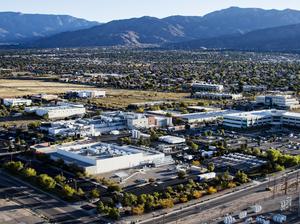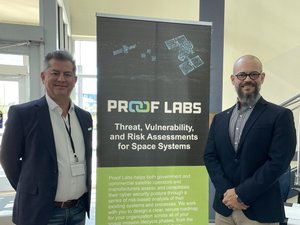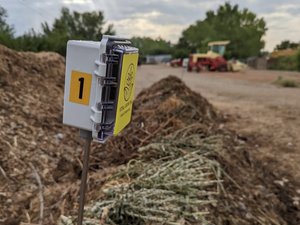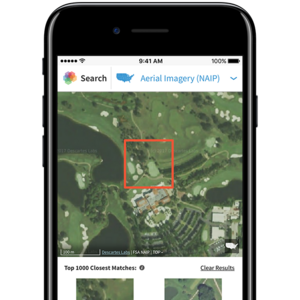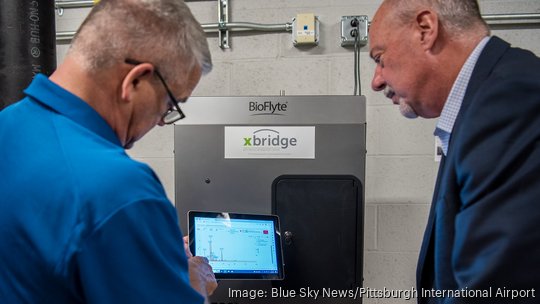
A technology testing program piloted at Pittsburgh International Airport could help BioFlyte's commercialization efforts take off.
The Albuquerque startup announced Tuesday it started a pilot program at the Pittsburgh airport. The pilot will see one of the company's bioaerosol surveillance instruments installed near one of the airport's ventilation systems.
That instrument uses a type of "fieldable mass spectrometry" technology — an advanced way to analyze molecules in given samples using the mass of different ions. It'll collect air from the airport environment and then analyze that air for biological threats like ricin and anthrax, Todd Sickles, BioFlyte's CEO, told Albuquerque Business First.
The goal of the technology is to detect harmful air and notify emergency responders linked up with the instrument faster than typical emergency response times — in less than five minutes, to be exact, Sickles said.
It's the first time BioFlyte has installed and used one of its biothreat surveillance instruments at an airport. It's also, according to Sickles, the first time mass spectrometry-based analysis technology has been used operationally outside a laboratory environment.
"The disruptive nature of our tech is not the tech itself, it's the application of it in an operational environment," Sickles said. "We've taken it from lab to basically industry, and we are running it through its pacesas though it is supporting an operational environment."
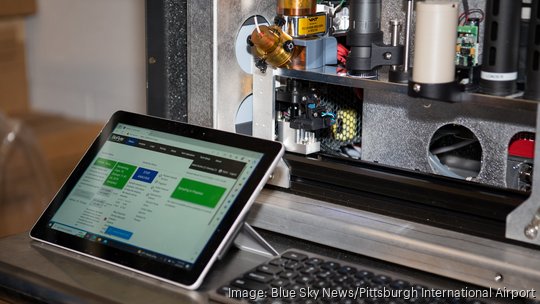
Sickles said the airport market is one major segment his company is targeting for business in the future, alongside other critical infrastructure environments like federal office buildings and mail screening centers. That means the pilot program in Pittsburgh is "very, very strategic" for BioFlyte, he said.
"No. 1, it will prove out our value proposition in airport environments," Sickles said. "Airports are a large segment both domestically and internationally, so this would be a tremendous gateway into that segment for us."
The pilot is being run in partnership with xBridge, an innovation center within Pittsburgh International Airport. The center works a bit like an accelerator program, where it looks to develop technologies from selected companies by testing them at the airport.
That's how Cole Wolfson, xBridge's director, described the innovation center's work. It's been around since November 2020 and has worked with 17 companies so far, including BioFlyte, although he said there are another 75 or so in the "pipeline."
Part of the center's process in deciding which companies to work with involves seeing if those companies "meet a need" that the airport has, Wolfson said. In that way, xBridge's partnership with BioFlyte on the pilot program is unique from its work with other companies.
"There are some companies that we work with where it's a potential revenue source for the airport or this is creating additional efficiencies for the airport," Wolfson said. "With BioFlyte it's slightly different in the sense that this is protecting our airport, this is letting us detect something that we couldn't previously detect.
"This can be integrated into our systems so that things automatically happen when something is detected," he continued. "So does the technology work, but then does it meet the need that we have for it at scale?"
BioFlyte and xBridge connected through Anzu Partners, a Washington, D.C.-based venture capital firm and early investor in the Albuquerque startup. The innovation center reached out to Anzu to see if any of the firm's portfolio companies would be a fit at the airport, and then Anzu recommended BioFlyte.
The two parties — BioFlyte and xBridge — ran an initial proof of concept that started in March of this year to see if the Albuquerque startup's tech could fit the airport environment. It did fit, Wolfson said; this pilot program is an extension of that initial work. It's goal will be to more thoroughly prove the function of the technology and service in the airport by closely analyzing the data BioFlyte's instrument produces, he said.
"This is both them and us learning together how to implement a new technology like that in this environment," Wolfson added.
The outcome of the pilot program, once it wraps up later this year, will be to develop what Sickles, BioFlyte's CEO, called a "solution architecture" for the entire airport. That would show how BioFlyte's surveillance instruments could be set up to monitor the complete airport environment, including four concourses, baggage claim and other ancillary areas, he said.
"We'll then take what we've learned from Pittsburgh and leverage it out to other interested airports who are watching this pilot very closely," Sickles said. "Some are domestic airports, we have one large international airport that's very interested potentially in the tech as well, and then we'll go to them and try to leverage it there."
BioFlyte has talked to around 50 airports, he said, 30 of which are "prospects" and then 10 which are "very, very qualified in terms of potentially moving toward a pilot or sale down the road."

The pilot program news comes less than two weeks after BioFlyte announced it raised $5.4 million in a Series B funding round. Money from that raise will go toward scaling the startup's sales and manufacturing bases. BioFlyte had budgeted money for the pilot program before announcing the investment, so none of the new funding will support the pilot, Sickles said.
In a different market segment, Sickles said BioFlyte recently sold its first mail screening unit to an investment firm based in New York. He didn't disclose the name of that firm but said more information about that first sale is forthcoming.
BioFlyte is looking to hire several engineering and manufacturing positions by the end of the year and could bring on around five additional people for its sales department early next year, Sickles said.

